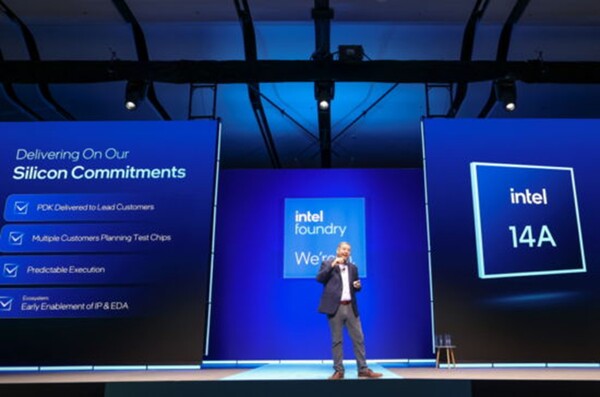Nvidia’s investment and U.S. support strengthen Intel’s position.

Competition in the 2-nanometer (nanometer, one billionth of a meter) market is intensifying as companies seek to challenge TSMC, the world’s largest foundry (semiconductor contract manufacturing). Samsung Electronics, along with U.S.-based Intel, has been steadily improving yields for its 2-nanometer-class advanced process ‘18A’ and is approaching mass production. Intel is securing competitiveness with investment from major client Nvidia and support from the U.S. government.
According to industry sources and foreign media on Nov. 24, Intel announced at the RBC Capital Markets Global TMT Conference on Nov. 18 (local time) that 18A process yields are increasing by 7% each month. The yield improvements have occurred over the past 7-8 months, and if current trends continue, Intel will be able to mass-produce 18A-based Panther Lake without cost increases. 18A is a 1.8-nanometer-class process, Intel’s latest technology designed to compete with TSMC and Samsung Electronics’ 2-nanometer-class processes.
John Pitzer, Vice President of Investor Relations, explained regarding the company’s foundry technology and strategy, “One of the things that has changed dramatically (recently) is that (18A) yield improvements are moving in a predictable direction,” adding, “We gained some confidence as we launch Panther Lake products this quarter.” Panther Lake showed poor performance with process yields of around 10% until mid-this year. The yield required for actual production is 70-80%.
Intel will unveil Panther Lake, its first 18A-based product, at CES 2026, the world’s largest IT and electronics exhibition, in Las Vegas in January next year. This demonstrates confidence, as Panther Lake has been considered the product that will determine the success or failure of Intel’s foundry business. Vice President Pitzer emphasized, “At 14A (1.4-nanometer-class), we are receiving faster, more, and better feedback from customers than 18A,” adding, “14A is far ahead of 18A in terms of performance and yield.”
Although Intel, as a latecomer, has faced difficulties due to recent restructuring, it is seeking rebuilding through aggressive support. Nvidia, which dominates the artificial intelligence (AI) market, invested $5 billion (approximately 7 trillion won) in Intel, and the U.S. government secured a 10% stake in Intel, taking measures close to nationalization. Intel is receiving full support under the U.S. trend of supporting domestic companies.
As Samsung Electronics is also staking everything on its 2-nanometer process, foundry companies are expected to continue pursuing TSMC to check its dominance. Industry sources estimate that Samsung Electronics’ 2-nanometer process yield has risen to 55-60%. As yields begin to stabilize, there are observations that Samsung Electronics will expand its 2-nanometer production capacity by more than double within a year by the end of next year.
An industry official explained, “Samsung Electronics appears to have secured a total of five major clients for its 2-nanometer process,” adding, “It is important to additionally secure major U.S. clients.”


